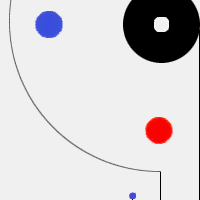I've seen people really get up in arms on this topic, and it always leaves me stunned. I mean, why bother? To me, certain things can be quantified, and others can't. I can measure resistance, capacitance, power, response, distortion, etc... It's a little harder to quantify beauty, although we've all seen some "10's", know what I mean?The double blind test is a way to put a reasonably objective metric on a subjective human evaluation. It is a way to ask things about percieved quality without exposing any details that might affect the outcome of the test. The idea is so obviously simple, I don't see anyone objecting to it. Maybe some of the mechanics of the test procedure can be flawed, like the switching device or whatever. But the basic concept of blind testing is good. The information it provides is useful.
Then again, if a person chooses a product because he digs it, that's cool too. I don't give a rat's tail if he can hear the quality difference or if it's partly aesthetics or maybe he's just keeping up with the Joneses. The choice may be purely psychological. Imagine choosing a sex partner by blind testing; It's a rather risque example, but I think you get my point. Maybe that isn't the way most people would prefer to choose their mate.
As for reviewers and "golden ears," I can't be sure about their tastes or their motives, so that's a different story. We talked about that in the thread called "Reviewers - Is it possible for them to be unbiased?."
But as for the simple question of whether blind tests are useful, I'd have to say they obviously are, because they're a way of introducing a degree of objectivity. It's additional information, that's all.











